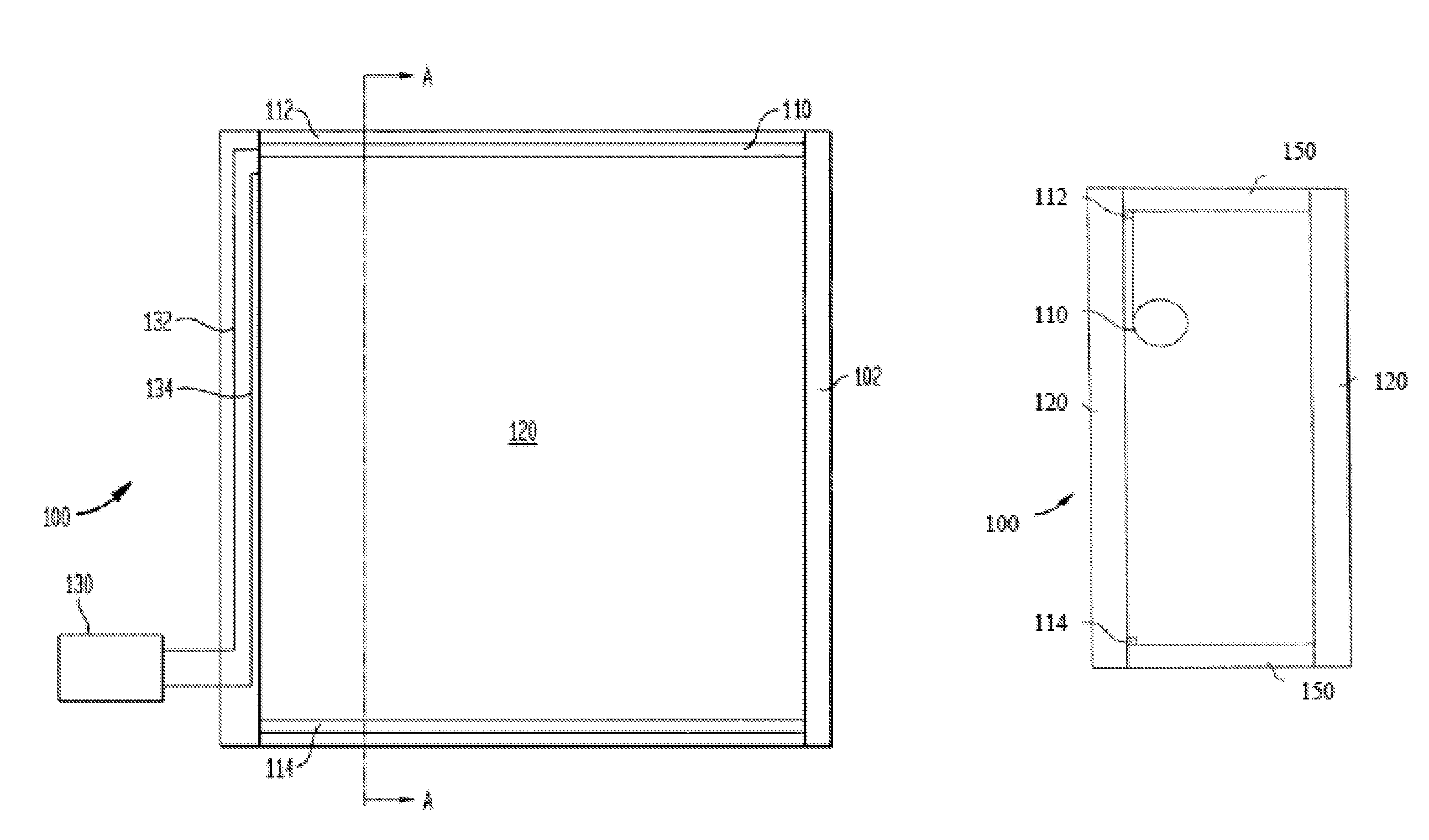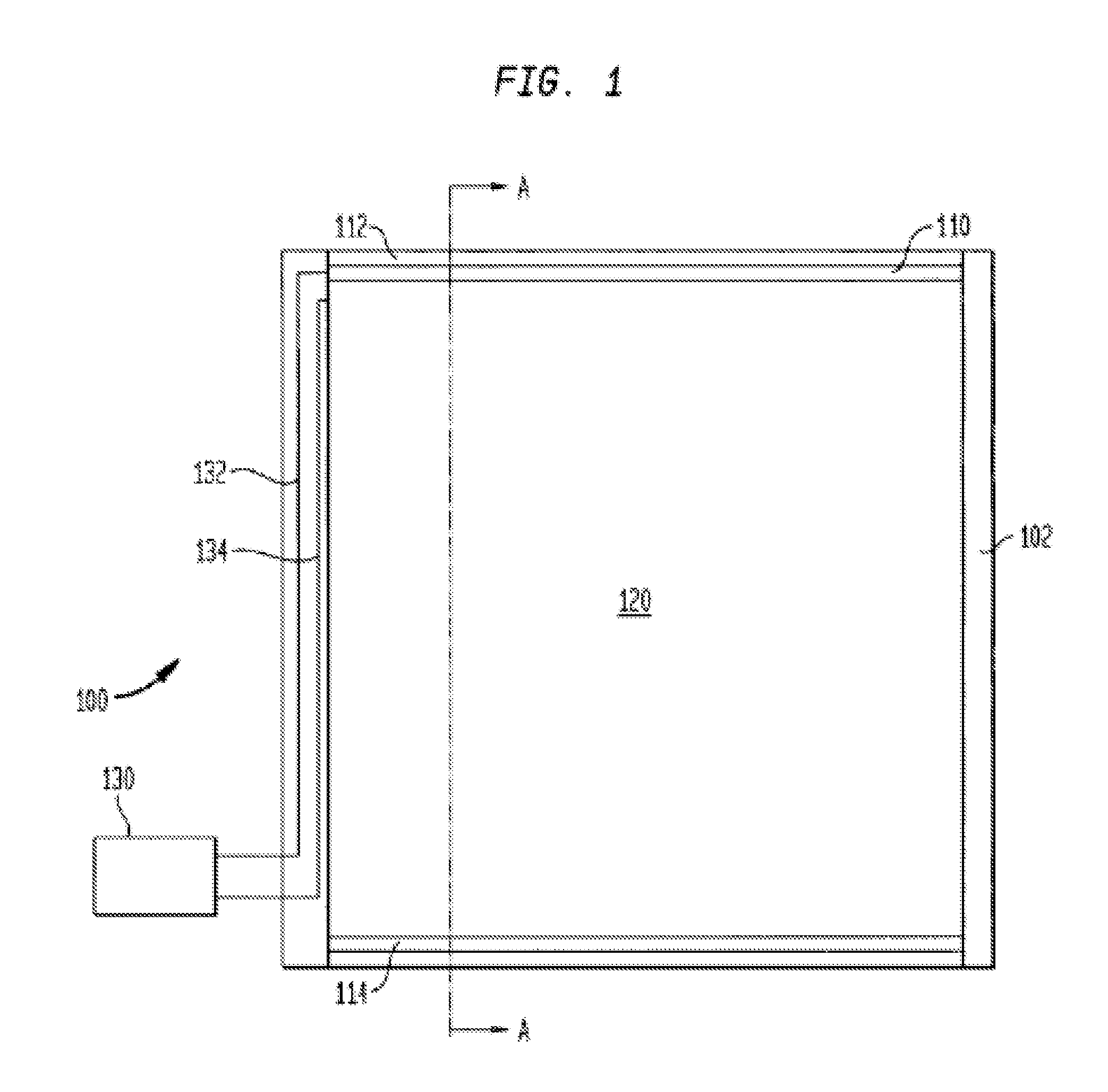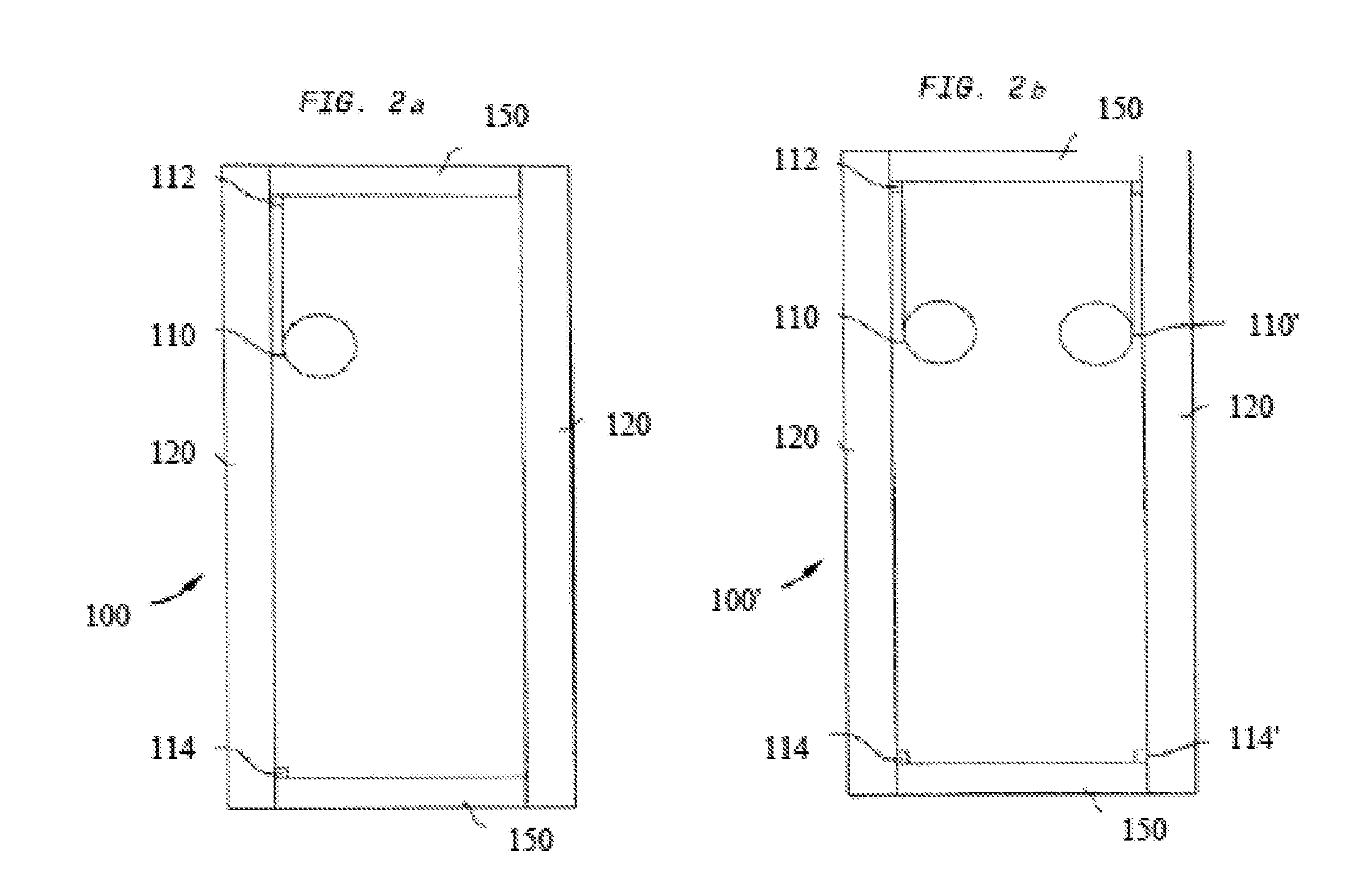Electronically controlled insulated glazing unit providing energy savings and privacy
a technology of insulated glazing and electric control, which is applied in the direction of door/window protection devices, instruments, constructions, etc., can solve the problems of increasing the cost of building operation, increasing the consumption of petroleum products and other non-renewable energy resources, and wasting 5% of the total energy consumed in the united states
- Summary
- Abstract
- Description
- Claims
- Application Information
AI Technical Summary
Benefits of technology
Problems solved by technology
Method used
Image
Examples
Embodiment Construction
[0061]The present invention overcomes the disadvantages of existing insulated glazing units, such as are used currently in energy efficient windows, by incorporating an electrically controlled, extremely thin physical electropolymeric shade between the glazing panes of the IGU. The shade of the invention provides improvements in functionality, reliability and manufacturability over known shade devices, for example, in the display pixels of existing display (“EPD”) technology, specifically by providing the glazing applications such as are described herein. Known shade devices are described in U.S. Pat. No. 4,266,339 (titled “Method for Making Rolling Electrode for Electrostatic Device” and issued May 12, 1981 to Charles G. Kalt), U.S. Pat. No. 5,231,559 (titled “Full Color Light Modulating Capacitor” and issued Jul. 27, 1993 to Kalt, et al.), U.S. Pat. No. 5,519,565 (titled “Electromagnetic-Wave Modulating, Movable Electrode, Capacitor Elements” and issued May 21, 1996 to Kalt, et al...
PUM
 Login to View More
Login to View More Abstract
Description
Claims
Application Information
 Login to View More
Login to View More - R&D
- Intellectual Property
- Life Sciences
- Materials
- Tech Scout
- Unparalleled Data Quality
- Higher Quality Content
- 60% Fewer Hallucinations
Browse by: Latest US Patents, China's latest patents, Technical Efficacy Thesaurus, Application Domain, Technology Topic, Popular Technical Reports.
© 2025 PatSnap. All rights reserved.Legal|Privacy policy|Modern Slavery Act Transparency Statement|Sitemap|About US| Contact US: help@patsnap.com



